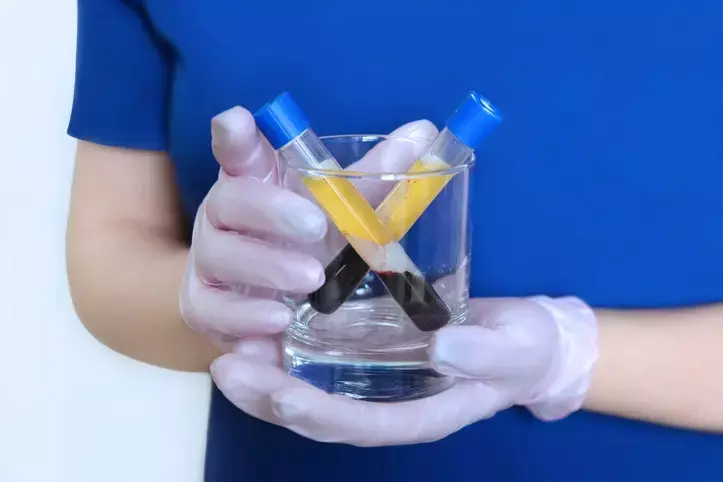- Home
- Medical news & Guidelines
- Anesthesiology
- Cardiology and CTVS
- Critical Care
- Dentistry
- Dermatology
- Diabetes and Endocrinology
- ENT
- Gastroenterology
- Medicine
- Nephrology
- Neurology
- Obstretics-Gynaecology
- Oncology
- Ophthalmology
- Orthopaedics
- Pediatrics-Neonatology
- Psychiatry
- Pulmonology
- Radiology
- Surgery
- Urology
- Laboratory Medicine
- Diet
- Nursing
- Paramedical
- Physiotherapy
- Health news
- Fact Check
- Bone Health Fact Check
- Brain Health Fact Check
- Cancer Related Fact Check
- Child Care Fact Check
- Dental and oral health fact check
- Diabetes and metabolic health fact check
- Diet and Nutrition Fact Check
- Eye and ENT Care Fact Check
- Fitness fact check
- Gut health fact check
- Heart health fact check
- Kidney health fact check
- Medical education fact check
- Men's health fact check
- Respiratory fact check
- Skin and hair care fact check
- Vaccine and Immunization fact check
- Women's health fact check
- AYUSH
- State News
- Andaman and Nicobar Islands
- Andhra Pradesh
- Arunachal Pradesh
- Assam
- Bihar
- Chandigarh
- Chattisgarh
- Dadra and Nagar Haveli
- Daman and Diu
- Delhi
- Goa
- Gujarat
- Haryana
- Himachal Pradesh
- Jammu & Kashmir
- Jharkhand
- Karnataka
- Kerala
- Ladakh
- Lakshadweep
- Madhya Pradesh
- Maharashtra
- Manipur
- Meghalaya
- Mizoram
- Nagaland
- Odisha
- Puducherry
- Punjab
- Rajasthan
- Sikkim
- Tamil Nadu
- Telangana
- Tripura
- Uttar Pradesh
- Uttrakhand
- West Bengal
- Medical Education
- Industry
Novel Biomarkers may Identify Biventricular Involvement in Arrhythmogenic right ventricular cardiomyopathy

Arrhythmogenic right ventricular cardiomyopathy (ARVC) is an inherited heart muscle disease characterized by fibrofatty replacement of the myocardium and ventricular arrhythmias. A recent study suggests that plasma levels of sST2 and GDF-15 can predict ARVC patients with biventricular (BiV) involvement. The study findings were published in the American Heart Journal in February 2022 issue.
Novel biomarkers of myocardial stress and inflammation such as soluble suppression of tumorigenicity-2 (sST2), galectin-3 (Gal-3) and growth differentiation factor-15 (GDF-15) have recently been demonstrated as predictors of adverse Heart Failure (HF) outcomes. However, the role of these biomarkers on ARVC has not been elucidated yet. Therefore, Dr Firat Duru and his team conducted a study to investigate the role of plasma biomarkers soluble (s)ST2, Galectin-3 (Gal-3) and GDF-15 in predicting biventricular involvement and adverse outcomes in ARVC.
The researchers included patients from 2 independent cohorts. The Bejing (Chinese) cohort (n = 108) was the discovery cohort, whereas the Zurich (Swiss) cohort (n = 47) served as validation. All patients had a definite ARVC diagnosis at the time of blood withdrawal.
Key findings of the study:
- Upon analysis, the researchers found that the biomarkers were independently correlated with NT-proBNP and left ventricular (LV)-function
- They found that ARVC patients with LV involvement had higher levels of sST2 and GDF-15 as compared to controls and patients with isolated right ventricle (RV) involvement
- They observed that sST2 and GDF-15 were significantly correlated with late gadolinium enhancement in CMR and with adverse heart failure outcomes
- They noted that Gal-3 was elevated in ARVC patients with and without LV involvement
- They wrote, "The combined use of the three biomarkers (sST2, GDF-15 and NT-proBNP) showed the best performance in predicting LV involvement in both cohorts."
- However, they noted that the plasma, drawn from the coronary arteries and coronary sinus indicated a transmyocardial elevation of sST2, but no transmyocardial gradient of GDF-15
- After heart transplantation, they found that both sST2 and GDF-15 returned to near-normal levels
The authors concluded, "Our study showed that sST2 and GDF-15 may predict BiV involvement in ARVC, whereas Gal-3 may be an isolated biomarker for fibrosis. sST2 and GDF-15 were significantly correlated with LV-LGE and also correlated with adverse HF outcomes".
They further added, "Additional outcome studies are needed to investigate the clinical role of these biomarkers in larger ARVC populations."
For further information:
Medical Dialogues Bureau consists of a team of passionate medical/scientific writers, led by doctors and healthcare researchers. Our team efforts to bring you updated and timely news about the important happenings of the medical and healthcare sector. Our editorial team can be reached at editorial@medicaldialogues.in.
Dr Kamal Kant Kohli-MBBS, DTCD- a chest specialist with more than 30 years of practice and a flair for writing clinical articles, Dr Kamal Kant Kohli joined Medical Dialogues as a Chief Editor of Medical News. Besides writing articles, as an editor, he proofreads and verifies all the medical content published on Medical Dialogues including those coming from journals, studies,medical conferences,guidelines etc. Email: drkohli@medicaldialogues.in. Contact no. 011-43720751


